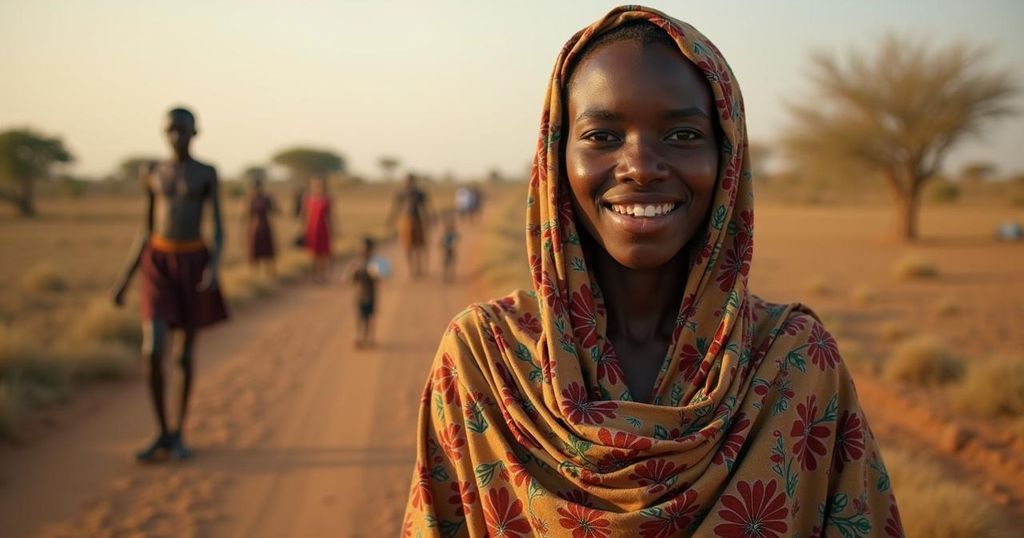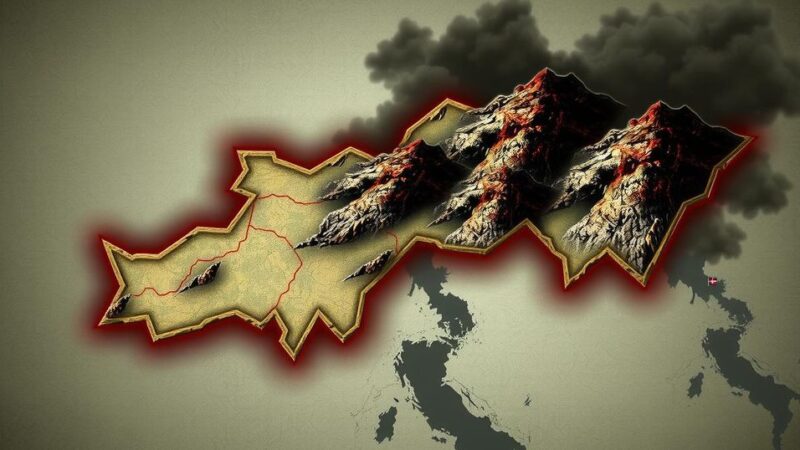The World Health Organization (WHO) has expressed grave concerns regarding widespread starvation in Sudan, stating it is “almost everywhere” in the country. Dr. Tedros Adhanom Ghebreyesus highlighted the alarming levels of displacement and famine, noting that 12 million people are displaced and 25 million require assistance. He criticized the low global attention towards Sudan, attributing part of the neglect to racial biases. He urged increased media coverage to address the humanitarian crisis effectively.
In a disheartening assessment of the humanitarian crisis in Sudan, Dr. Tedros Adhanom Ghebreyesus, Director-General of the World Health Organization (WHO), stated that starvation is pervasive throughout the conflict-ridden nation. He expressed his concerns during an appearance on the BBC’s Today programme, following his visit to Sudan. Dr. Tedros detailed the severity of the situation, highlighting that Sudan now faces the largest displacement crisis in the world, with approximately 12 million individuals uprooted from their homes due to the ongoing civil war that erupted in April 2023 between the Sudanese army and the paramilitary Rapid Support Forces (RSF). He lamented the global community’s inadequate response to the crisis, attributing part of the apathy to racial biases, stating, “I think race is in the play here. That’s what I feel now. We see the pattern now.” Dr. Tedros painted a picture of devastation, remarking on the rampant destruction, disease, and famine affecting the populace. He indicated that roughly 25 million people, or half of Sudan’s population, are in dire need of assistance. His visit included an inspection of a camp for internally displaced persons and a local hospital, where he encountered malnourished children suffering from severe emaciation. The WHO leader criticized the stark imbalance in international attention given to different humanitarian crises, particularly pointing out that, unlike the support garnered for Ukraine following Russia’s invasion in 2022, similar crises in Africa—including Sudan—do not receive comparable global focus. He underscored the media’s critical role in bringing attention to these issues by urging more coverage of the dire circumstances in Sudan, deeming it a tragedy that is often overlooked. Furthermore, he referenced a recent declaration from a UN-backed committee that recognized a famine affecting a camp with approximately 500,000 displaced individuals near el-Fasher in Darfur, which is among the most severely impacted regions in the ongoing conflict. Dr. Tedros emphasized that the humanitarian situation in Sudan is representative of a broader trend of neglect faced by crises in Africa, a sentiment he has observed throughout his career, particularly rooted in his experiences during wartime in Ethiopia.
The current crisis in Sudan is largely the result of escalating violence following the civil war that began in April 2023. The conflict is primarily between the Sudanese Armed Forces and the RSF, a paramilitary group that was initially an ally but has since become an adversary. The war has triggered an escalating humanitarian disaster, characterized by widespread displacement and severe food shortages. With millions of Sudanese people displaced and at risk of famine, global attention and assistance remain critically low. The comments from Dr. Tedros reflect concerns that racial biases affect the international community’s response prioritization, with certain crises receiving more attention than others depending on geopolitical interests. Recent mediation efforts involving key regional players such as Saudi Arabia and the United Arab Emirates have not been successful in resolving the conflict, further compounding the crisis. The World Health Organization’s involvement highlights the growing urgency to respond to the needs of the Sudanese population, as the situation rapidly deteriorates in the absence of substantive international intervention.
In conclusion, Dr. Tedros Adhanom Ghebreyesus’ remarks underscore the severe humanitarian crisis in Sudan, where starvation and displacement have reached alarming levels amidst ongoing conflict. His call for heightened global awareness and intervention reflects not only the immediate needs of the Sudanese people but also a troubling trend of racial disparity in humanitarian responses. Without increased media attention and international aid, the already dire situation in Sudan may continue to worsen, impacting millions who require urgent assistance.
Original Source: www.bbc.com






